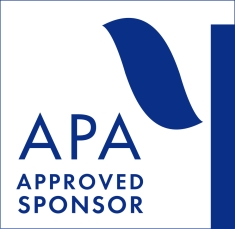Accelerating Behavior Reduction through Intensive Behavioral Parent Training
REGISTRATION IS CLOSED
Description
The literature on mechanisms underlying externalizing behavior problems suggests that a core skill deficit includes impulsive responding, reflecting a bias towards immediate over delayed reinforcement. Research investigating the impact of screen time on children’s functioning have found that high levels of screen use are associated with exacerbation of impulsive behavior. While traditional behavioral parent training (BPT) programs (e.g., Parent-Child Interaction Therapy [PCIT]; The Incredible Years) are among the most frequently used front-line interventions to address behavior problems in children, it is unclear how these programs address these underlying mechanisms. Available evidence from precision-based behavioral treatment packages for challenging behavior in children suggests that individualized programs targeting deficits in tolerating frustration and delay to gratification may be highly effective. The current presentation will focus on behavioral intervention based in applied behavior analysis (ABA) designed to improve impulsive responding in both children and their caregivers via systematic exposure training (i.e. programming response-reinforcer delays) in a high dosage behavioral parent training model. Data on program efficacy, acceptability, and long-term outcomes will be presented and discussed.
Learning Objectives
Participants will be able to:
-
discuss potential mechanisms in behavioral therapy for childhood deficits in frustration tolerance.
-
identify the strengths of high dose-density treatment courses as a means of improving clinical outcomes (i.e., attrition, behavior reduction).
Instructor Bio
Dr. Matt Edelstein is dually licensed as a psychologist and behavior analyst in the state of Maryland and is a board certified behavior analyst at the doctoral level (BCBA-D). He directs Brief Treatment Clinic at Kennedy Krieger Institute, he supervises staff psychologists, behavior analysts, doctoral interns, and postdoctoral fellows. Dr. Edelstein is an assistant professor in the Department of Psychiatry and Behavioral Sciences at the Johns Hopkins University School of Medicine. He obtained his bachelor’s degree from Boston University and his Master’s degree from Columbia University. He received his doctorate in clinical psychology from the Graduate School of Applied and Professional Psychology at Rutgers University.
Dr. Edelstein completed his doctoral internship and postdoctoral fellowship at Kennedy Krieger Institute and Department of Pediatrics at Johns Hopkins University School of Medicine. Dr. Edelstein’s clinical and research interests include the assessment and treatment of challenging behavior in pediatric populations, child behavior disorders, and behavioral parent training. His current research focuses on the development of assessment and treatment procedures to provide early intervention to young children with behavior disorders, identifying methods of data collection to improve caregiver participation in treatment, and the systematic application of behavior analytic protocols in outpatient settings to improve patient outcomes. He and is a member of the American Psychological Association (APA) and the Association of Behavior Analysts International (ABAI).
Dr. Edelstein has no conflicts of interest for this program.
Contact Us
For questions, please contact: ce@gsapp.rutgers.edu
Continuing Education Information
Rutgers University- New Brunswick, Graduate School of Applied and Professional Psychology is an approved provider of BCBA continuing education credits. “The Behavior Analyst Certification Board (“BACB”) does not sponsor, approve or endorse Rutgers University- New Brunswick, Graduate School of Applied and Professional Psychology, the materials, information or sessions identified herein.”
Rutgers Graduate School of Applied and Professional Psychology (GSAPP) is recognized by the New York State Education Department's State Board for Psychology as an approved provider of continuing education for licensed psychologists #PSY-0123.
Rutgers Graduate School of Applied and Professional Psychology (GSAPP) is approved by the National Association of School Psychologists to offer professional development for school psychologists. Rutgers Graduate School of Applied and Professional Psychology (GSAPP) maintains responsibility for the program.
LMFT/MFT and LPC/LAC Licensed in New Jersey: Programs approved by the American Psychological Association are acceptable sources of continuing education credits. Please see https://www.njconsumeraffairs.gov/regulations/Chapter-34-Subchapters-10-31-Professional-Counselors.pdf, Section: 13:34-15.4 APPROVAL OF COURSES OR PROGRAMS on page 27. For all other professional licenses and certifications, please reference your issuing state board regulations regarding reciprocity of continuing education credits.

Rutgers Graduate School of Applied & Professional Psychology is approved by the American Psychological Association to sponsor continuing education for psychologists. Rutgers Graduate School of Applied & Professional Psychology maintains responsibility for this program and its content.
